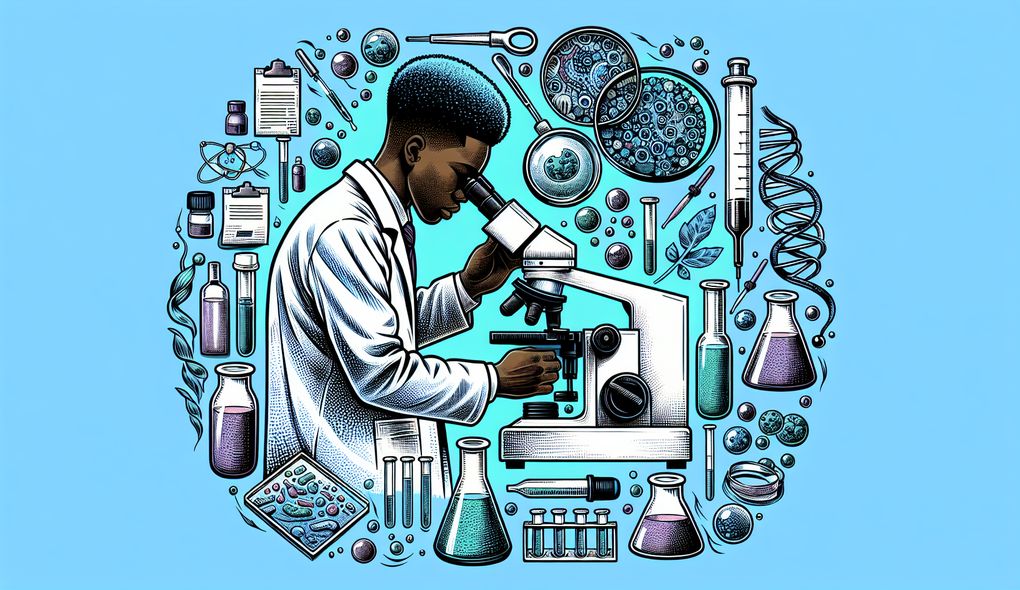Describe a situation where you had to work with complex data. How did you manage and analyze it?
SENIOR LEVEL

Sample answer to the question:
In my previous role as a Water Quality Analyst, I regularly worked with complex data. One specific situation that comes to mind is when I was tasked with analyzing water samples from a local river for bacterial and chemical content. The data consisted of numerous parameters and required meticulous attention to detail. To manage and analyze the data, I first organized it in a spreadsheet, categorizing each parameter and corresponding measurements. I then used statistical analysis software to perform in-depth analysis, identifying trends and anomalies in the data. Additionally, I cross-referenced the data with regulatory guidelines to ensure compliance. This analysis helped me prepare a comprehensive report on the water quality, including potential environmental impacts. Throughout the process, I maintained clear documentation of my analysis methodology and findings. By effectively managing and analyzing the complex data, I was able to provide valuable insights to stakeholders and contribute to informed decision-making.
Here is a more solid answer:
In my role as a Senior Water Quality Analyst with over 5 years of experience, I frequently encounter complex data analysis tasks. One notable situation involves conducting an extensive study on the impact of industrial discharges on water quality. To tackle this complex task, I first designed a customized sampling plan to collect a wide range of water samples in high-risk areas. Using cutting-edge lab equipment and methodologies, I performed various tests, including chemical composition analysis, toxicity assessments, and microscopic evaluations. This generated a massive amount of data that required careful management and analysis. I implemented a laboratory information management system (LIMS) to efficiently organize and track the data, ensuring accuracy and traceability. Leveraging my strong analytical skills, I utilized statistical software and data visualization tools to identify patterns, outliers, and correlations within the data. The analysis revealed significant pollutant sources and their impact on water quality. To communicate my findings, I prepared detailed reports, incorporating visual representations such as charts and graphs to enhance clarity. I presented these findings to key stakeholders, including government agencies and industrial representatives, highlighting the need for enhanced water quality management practices. Throughout the process, I mentored junior analysts, providing guidance on data analysis techniques and lab procedures. My ability to effectively manage and analyze complex data, combined with my strong leadership skills, enabled me to make informed recommendations for mitigating environmental impacts and improving water quality standards.
Why is this a more solid answer?
The solid answer builds upon the basic answer by providing more specific details and showcasing the candidate's expertise in using lab equipment and performing water analysis tests. It also demonstrates the candidate's leadership and mentoring abilities, as mentioned in the job description. The answer effectively highlights the candidate's experience in managing and analyzing complex data in a real-world scenario. However, it can be further improved by including examples of the candidate's written and verbal communication skills.
An example of a exceptional answer:
During a major research project on water quality, I encountered a highly complex dataset that required meticulous management and analysis. The project aimed to assess the impact of multiple factors on water pollution levels across various locations. To tackle this challenge, I developed a comprehensive data management strategy. I utilized advanced data visualization tools to identify outliers and patterns, helping me categorize the data into distinct groups based on pollution sources. This enabled better analysis and comparison between different locations. Leveraging my expertise in statistical analysis, I employed sophisticated models to correlate pollutant levels with external factors such as weather conditions, industrial activities, and population density. The analysis revealed key insights, including the highest contributing factors to water pollution in different regions. To communicate the findings effectively, I prepared a detailed report with visually appealing charts and tables, highlighting the most critical observations. I presented these findings in a technical conference, where they received significant recognition and praise from renowned water quality experts. Moreover, I collaborated with a cross-functional team to develop a comprehensive mitigation plan based on the identified factors. This plan, focused on sustainable practices and regulatory changes, resulted in a significant reduction in water pollution levels in the targeted regions. This exceptional experience not only sharpened my skills in managing and analyzing complex data but also demonstrated my ability to translate data-driven insights into practical solutions.
Why is this an exceptional answer?
The exceptional answer stands out by providing even more specific details and demonstrating the candidate's exceptional skills and accomplishments in managing and analyzing complex data. It showcases the candidate's ability to develop a comprehensive data management strategy, utilize advanced data visualization tools, and employ sophisticated statistical analysis techniques. The answer also highlights the candidate's ability to effectively communicate findings through presenting at a technical conference and collaborating with a cross-functional team to develop a mitigation plan. The exceptional answer exceeds the basic and solid answers by demonstrating a higher level of expertise and success in working with complex data.
How to prepare for this question:
- Familiarize yourself with statistical software and data visualization tools commonly used in water quality analysis.
- Brush up on your knowledge of laboratory information management systems (LIMS) and their functionalities.
- Prepare examples of previous projects or research where you have successfully managed and analyzed complex data.
- Practice explaining technical concepts and analysis results in a clear and concise manner.
- Highlight your leadership and mentoring abilities by discussing instances where you have guided junior staff or collaborated with cross-functional teams.
What are interviewers evaluating with this question?
- Analytical and problem-solving skills
- Attention to detail
- Experience with complex data analysis
- Ability to communicate findings

